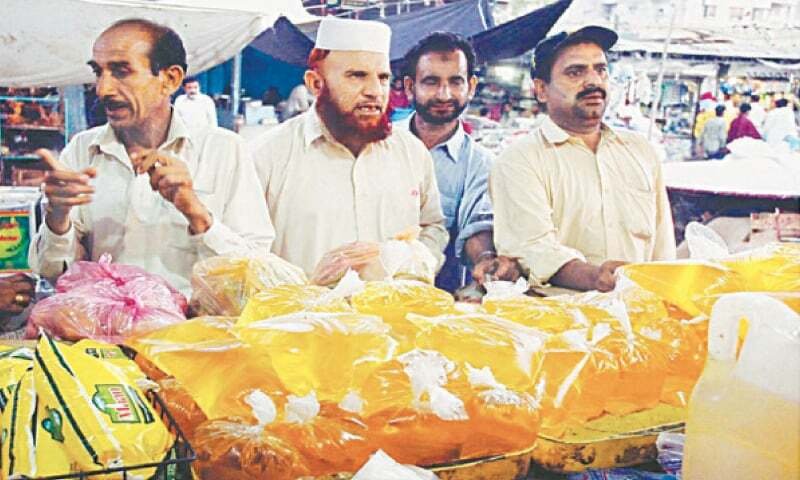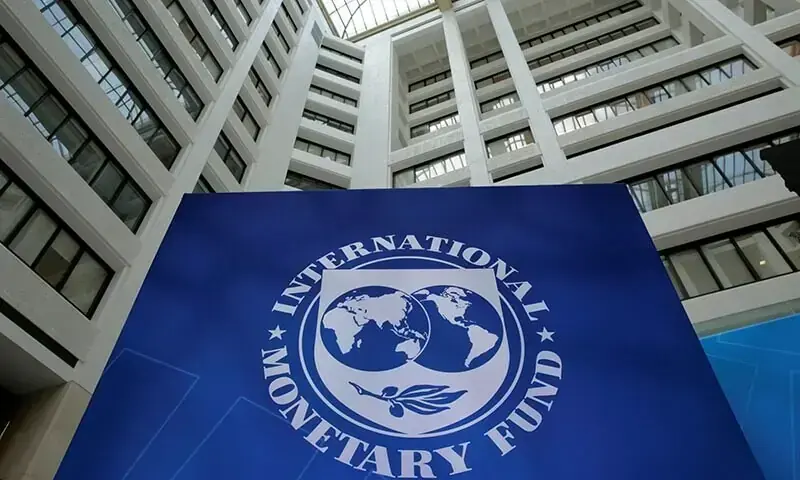Karachi: approximately 30 percent of edible oil consumed in Pakistan annually, more than 4.5 million tons, comprises the loose and brandless oil that is mainly found in the semi -urban and rural areas. In these regions, affair often exceeds concerns about oil quality, exposing millions to significant health risks.
Loose oil, typically sold in bulk without proper packaging or labeling, often contains harmful chemicals, impurities and biological pollutants. These represent serious health threats, including cardiovascular diseases, strokes and brain disorders, experts warn.
This problem was highlighted during a recent advisory meeting on regularization of edible oil, organized by Nutrition International (Ni), a Canadian organization. Qureshi, a representative of Ni, died, said that between 40 percent and 45 % of the low -income population of Pakistan is based on this informal sector for their oil supply.
Dr. Hasan Oroooj, Technical Consultant of Ni, said that Sindh is home to 33 loose oil factories, with the majority located in Karachi, followed by Hyderabad and Sukkur. Baluchistan, on the other hand, has only two mills, depending largely on Sindh’s oil, and Iranian smuggling oil is also reaching the local market.
A consensus has been reached to carry the sale of loose edible oil to a regulatory frame, which requires sealed containers, licenses and traceability
Dr. Oroooj emphasized that Iranian oil is 100pc suitable for consumption, while Sindh and Punjab samples have failed in health tests.
Pakistan is located as the eighth largest consumer of edible oil worldwide, with per capita consumption at 22 kg annually. While brand oils are subject to rigorous refining processes, including filtration, deodorization and neutralization, loose oil often occurs without such safeguards. It is commonly stored in non -sterilized containers and is transported in unhealthy conditions, so it is very prone to pollution and oxidation.
The price difference between loose oil and the brand is considerable. The loose oil, which lacks essential vitamins A and D, costs between RS1,000 and RS1,500 for a 5 -liter container, while brand oil has a price of around RS2,700 for the same amount.
However, the quality of loose oil is compromised due to high levels of trans fats, rusty lipids and other toxic compounds formed during inappropriate processing. Trans fats, known for raising bad cholesterol (LDL) while decreasing good cholesterol (HDL), significantly increases the risk of heart disease. In addition, the common practice of reheating the oil, particularly in the Pakistani and southern Asia cuisine, further degrades its quality, producing carcinogenic substances such as acrylamide and polycyclic aromatic hydrocarbons (HAP).
Dr. Orooj explained that appropriate refining processes eliminate free fatty acids, eliminate gums and neutralize unpleasant odors, ensuring that the oil is safe for consumption. In contrast, non -refined oils retain higher levels of pesticides and aflatoxins, which are linked to liver damage and cancer.
Regulation of edible oil sector
He also pointed out successful regulatory transitions in India and other Asian nations, where informal oil markets were taken to formal regulatory frameworks through government intervention. As part of the proposed solution, Dr. Orooj requested the establishment of a “regularization compliance committee” (RCC) to supervise the registration and regulation of loose oil suppliers.
The committee, which would include representatives of SFA, Nutrition International, the University of Karachi and other agencies, would supervise the completion of the necessary legal and security requirements.
Dr. Sema Ashraf of the Food Authority of Sindh (SFA) pointed out that, although there are more than 54 PSQCA standards for several edible oils, the specific codex standards of the pressed and cold oils have not yet been adopted (for example, mustard, sesame, sunflower). She urged the implementation of these standards or the development of provincial regulations to fill the void.
Farhan, president of the edible Karachi Oil Association (KEOA), recognized the health risks associated with loose oil, but emphasized the importance of the sector in supporting millions of consumers and livelihoods. He suggested that a formal license and registration system be introduced, allowing small producers to comply with security and quality reference points.
A consensus arose at the meeting, with the interested parties that agreed that all edible oils should be sold in sealed packaging, labeled with numbers of traceable lots. The loose oil, according to current regulations, should be considered non -edible, and suppliers must adhere to the standards established by PSQCA or CODEX FUEX. In addition, the license and registration must be applied to wholesalers, distributors and processors on a small scale, and the sale of oil -free oils must be eliminated through a clear regulatory framework.
Dr. SM Ghufran Saeed, of the Department of Science and Technology of the University of Karachi, expressed concerns about the lack of traceability and the labeling of loose oils, which often leads to adulteration with hazardous substances, such as recycled frying oils or even industrial degree fats.
He recommended a complete prohibition of the commercial sale of loose oils, which currently operates in a regulatory gray area, and requested a national application of formal license procedures.
Dr. Umar Mukhtar Tarar de Pcsir Karachi proposed to categorize stakeholders in different regulatory groups, each that requires customary measures. He emphasized the importance of monitoring interprovincial trade and the movement of lower quality oils through joint inspection equipment.
Mrs. Farah Athar of the Punjab Food Authority (PFA) recommended that the SFA prohibit the sale of loose oils after a three -month transition period, with small vendors that are allowed to continue operating in regulated conditions. He also requested mandatory labeling requirements to guarantee compliance with national food security standards.
Dr. Ahmed Ali Sheikh, which represents the Food Authority of Sindh, concluded that the government is committed to regulating the loose oil sector and is prepared to support sellers through the registration and regularization process.
As Pakistan fights with the health and economic implications of loose edible oils, the need for urgent reform is clear. The collective efforts of regulators, academics and industry representatives are crucial to safeguard public health and ensure that the edible oil sector makes the transition to a more formal and regulated framework.
Posted in Dawn, August 10, 2025







